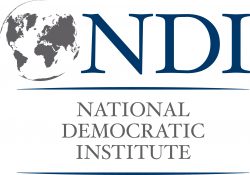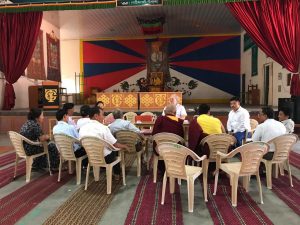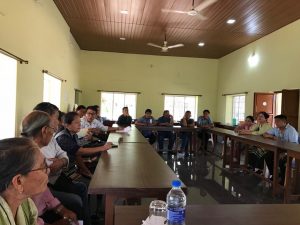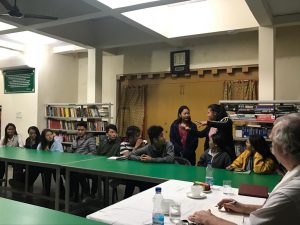
A two-member team from the National Democratic Institute (NDI) visited Tibetan communities in Delhi, South India and Dharamsala from March 9-21 and completed the first phase of a multi-phase assessment on strengthening Tibetan democracy, governance and the CTA.
NDI is a nonprofit, nonpartisan organization working to support and strengthen democratic institutions worldwide through citizen participation, openness and accountability in government.
NDI has been engaged by the U.S. State Department’s Bureau of Democracy, Human Rights and Labor (DRL) to conduct a multi-phased assessment of the CTA’s governance practices and organizational capacity. The assessment aims to help the CTA systematically identify best practices and the most effective approaches within its institutions – which could be adopted across its other departments and processes — as well as identify priority areas where improvements can be made. The assessment will examine components such as election management, parliamentary functions, information management and e-governance systems. The assessment will be conducted in phases, with each phase focusing on one or more sector. Based on the assessment findings, NDI will develop recommendations to help the CTA strengthen its democratic governance and functions.
The assessment being undertaken for DRL is related to the USD3 million funding provided by the US government in both the fiscal year 2018 and 2019 budgets
to strengthen the capacity of Tibetan institutions and governance, including the Tibetan Administration. Programs that can be funded under this funding include activities to strengthen democracy, governance, information and international outreach, research and digital security.
During last month’s visit, the NDI team focused on electoral issues. The team collected primary data through key informant interviews with CTA officials, members of parliament and small group discussions with constituents in Delhi, Bangalore, Bylakuppe, Hunsur and Dharamsala. The team has since also spoken with Tibetan representatives and community members in North America and England. The visiting NDI team; which included an expert on elections, constitutions and democracy building; explored four primary areas related to electoral issues:
- Practical process. This includes registration process, voting, counting of votes, finance and logistics etc.
- Design and Process. The structure and framework of the election process. The policy of the election commission and the thoughts on the recent amendments.
- Environment of the election process– How people feel about the campaign and the freedom of voters
- The successes, challenges, difficulties and surprises during the election process.
NDI will submit its report to DRL, which will result in funds being made available to strengthen Tibetan elections and electoral systems. NDI will then send a separate team to assess the next area for support, which may be strengthening the Tibetan parliament, e-governance, etc.
The entire DRL-funded assessment is being facilitated on CTA’s end by the Social and Resource Development Fund (SARD). SARD is in close communication with both DRL and NDI. A SARD project staff accompanied and facilitated most of the NDI team’s meetings during their recent visit to India.



